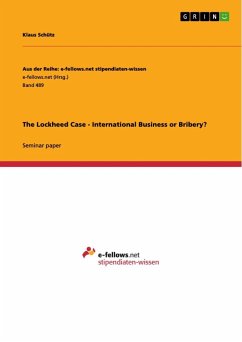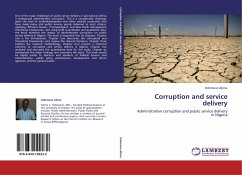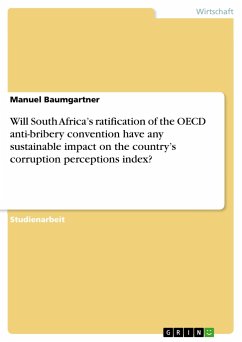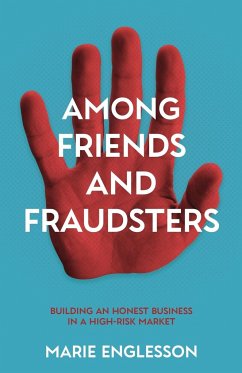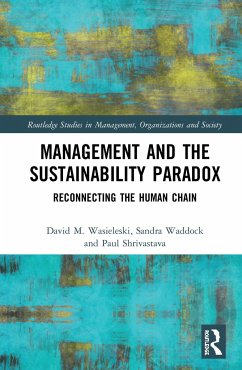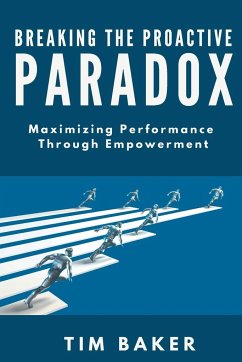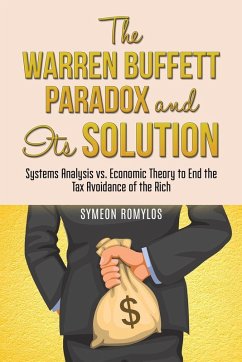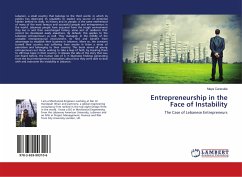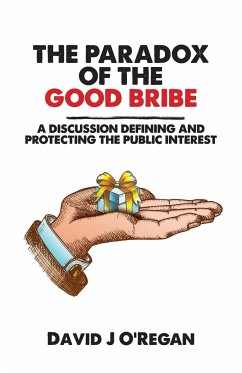
The Paradox of the Good Bribe
A Discussion Defining and Protecting the Public Interest
Versandkostenfrei!
Versandfertig in 1-2 Wochen
31,99 €
inkl. MwSt.

PAYBACK Punkte
16 °P sammeln!
What do Plato and the Bible tell us about bribery? Does it even matter? When it comes to ethical guidance on bribery should we look less to traditional wisdom and instead be seeking understanding and guidance primarily from modern sources? From economists with their talk of efficient markets, and from the critical theorists who focus on inequities in power relations? This book explores such questions in depth. Taking the form of a Platonic dialogue, the book contains a discussion of claims made for recognition of the positive aspects of bribery. This goes beyond the well-known "harmless" bribe...
What do Plato and the Bible tell us about bribery? Does it even matter? When it comes to ethical guidance on bribery should we look less to traditional wisdom and instead be seeking understanding and guidance primarily from modern sources? From economists with their talk of efficient markets, and from the critical theorists who focus on inequities in power relations? This book explores such questions in depth. Taking the form of a Platonic dialogue, the book contains a discussion of claims made for recognition of the positive aspects of bribery. This goes beyond the well-known "harmless" bribe - the facilitating or "grease" payment which encourages an official to speed up the performance of his or her existing duties, without additional favors. This type of baksheesh may be unattractive but it may be ethically acceptable on occasion, on the grounds of expediency. The discussion also covers the more controversial claim that some bribes are undeniably virtuous, owing to their positive consequences. An example of virtuous bribery is that made by Oskar Schindler to save lives in the Second World War. The book's unique discussion format provides space for the comparison and differentiation of a plurality of ethical perspectives, and it reveals some surprising common ground between ostensibly irreconcilable ethical viewpoints. If a convincing case could be made for the acceptability of certain categories of bribery, the implications for public and institutional anti-bribery policies would be significant. In particular, the rationale for "zero tolerance" approaches might be threatened. Perhaps the ultimate public policy question raised in the text is how we might accommodate a fringe of virtuous and harmless bribery alongside a strict vigilance over the damaging effects of most bribes. By exploring this topic, this book will be of interest to public policy makers, anti-corruption professionals, and the general reader interested in counter-corruption practices.





